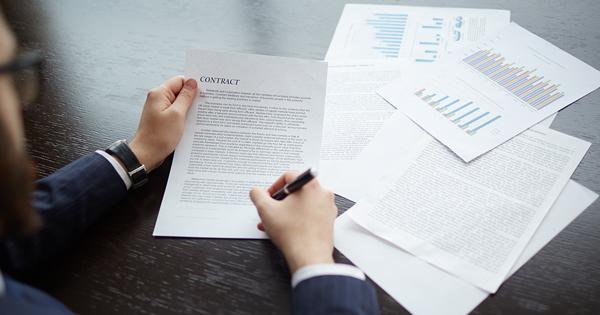In today's digital age, businesses rely on advertising agencies to help them reach their target audience and achieve marketing success. However, with the proliferation of advertising agencies, it has become increasingly challenging to distinguish between legit service providers and counterfeit ones.
This blog aims to provide you with essential insights from marketing conferences on identifying and verifying authentic advertising agencies. By doing so, you’ll be able to protect your business and customer trust.
Conduct Thorough Background Research
Experts at the Marketing 2.0 Conference highlight the importance of thoroughly engaging with an advertising agency before trusting it. It's crucial to conduct in-depth background research to ensure their legitimacy. Here are some steps that experts suggest you should take:
- Check Their Reputation And Client Reviews
One of the first steps in verifying an advertising agency is to assess its reputation and client reviews. Start by visiting their website and exploring their portfolio and client testimonials.
However, remember that some counterfeit agencies may post scam reviews, so it's essential to cross-reference these with reviews on third-party websites like Google My Business, Yelp, or industry-specific forums.
- Investigate Their Portfolio
Review the agency's portfolio to check if they have worked with reputable brands in your industry. Legitimate agencies often showcase their successful campaigns and client collaborations. Ensure the portfolio is diverse and not dominated by a single client or industry, as this can be a red flag.
- Contact Previous Clients
If possible, reach out to the agency's previous clients for references. Ask about their experiences, the agency's professionalism, and the results achieved. This feedback can provide direct insights into the agency's credibility and performance.
- Verify Their Licensing And Certifications
Check if the agency holds the licenses and certifications required in your jurisdiction. Legitimate advertising agencies are usually registered and comply with industry standards. Contact relevant regulatory bodies to confirm their credentials.
Assess Their Expertise And Industry Knowledge
A legitimate advertising agency should have a deep understanding of your industry and the latest marketing trends. Various sales and marketing conferences have emphasized this fact and shared some ways to assess their expertise. These are mentioned below:
- Evaluate Their Team
Examine the qualifications and experience of the agency's team members. Legitimate agencies employ professionals with diverse skill sets, including marketers, designers, copywriters, and data analysts. Verify their credentials and ensure they have the expertise to meet your marketing needs.
- Ask About Their Marketing Strategies
During initial discussions with the agency, inquire about their marketing strategies and approaches. They should be able to explain their methods and how they intend to tailor their strategies to your business goals. Beware of agencies that provide vague or generic responses, as this can be a red flag for a scam.
- Stay Updated With Industry Trends
A credible advertising agency should stay up-to-date with industry trends and technological advancements. Inquire about their commitment to ongoing education and training for their team members. Their ability to adapt to evolving marketing landscapes is a sign of professionalism.
- Request Case Studies
Ask the agency for relevant case studies of their successful campaigns within your industry. Analyze the strategies they used, the results achieved, and whether they align with your business objectives. Legitimate agencies are usually eager to share their success stories.
Transparency In Pricing And Contracts
Unscrupulous advertising agencies often exploit their clients with hidden fees and unclear contracts. To avoid falling into such traps, experts at marketing conferences suggest to focus on transparency using the methods below:
- Request A Detailed Proposal
Ask the agency for a detailed proposal outlining their services, pricing structure, and any additional costs. Ensure that all fees are clearly explained and there are no vague or ambiguous terms. Be wary of agencies that are hesitant to provide a comprehensive proposal.
- Review The Contract Thoroughly
Before signing any contracts, carefully review all terms and conditions. Pay attention to cancellation policies, payment schedules, or any clauses that might bind you to the agency for an extended period. Seek legal counsel to ensure you fully understand and agree to the terms.
- Clarify Reporting And Measurement Metrics
Legit agencies are transparent about how they measure and report campaign performance. Ask them about the key performance indicators (KPIs) they use and the frequency of reporting. Ensure that you can track the development of your campaigns and assess their impact on your business.
- Avoid Agencies Promising Unrealistic Results
Be cautious of agencies that promise guaranteed success or unrealistic results within a short timeframe. Various factors can influence marketing outcomes, and setting overly ambitious expectations may indicate an agency's lack of integrity.
Verify Their Legal Compliance And Ethical Practices
Marketing 2.0 Conference highlights scam protection in its agendas (Dubai and USA) to help professionals practice a fraud-free business. To protect your business and reputation, it's essential to verify that the advertising agency adheres to legal and ethical standards. According to reviews from sales and marketing conferences, below are some ways to do that:
- Check For Compliance With Data Protection Regulations
If the agency collects and uses customer data, ensure they comply with data protection regulations. They should have robust data privacy policies and practices to safeguard your customers' information.
- Inquire About Ad Transparency
Ask the agency about their approach to ad transparency and compliance with platforms like Google Ads and Facebook Ads. They should follow best practices in ad creation and not engage in deceptive advertising practices.
- Assess Their Ethical Standards
Evaluate the agency's ethical standards and values. Verify they do not engage in unethical practices like click fraud, plagiarism, or misleading marketing tactics. Reputable agencies prioritize ethical conduct.
- Request References From Industry Peers
To gain further assurance of an agency's ethical practices, seek references from industry peers or associations. These references can provide insights into the agency's reputation and adherence to ethical standards.
Conclusion
The success of your marketing efforts greatly depends on partnering with a legit advertising agency. By conducting thorough background research, assessing their expertise, ensuring transparency in pricing and contracts, and verifying their legal compliance and ethical practices, you can make an informed decision while selecting an agency that aligns with your business goals.
Global professionals gathered at the Marketing 2.0 Conference share that protecting your business from counterfeit agencies requires vigilance and legitimate scam-detection skills, but the rewards of a successful partnership are well worth the effort.




